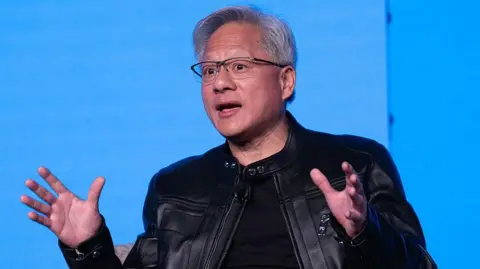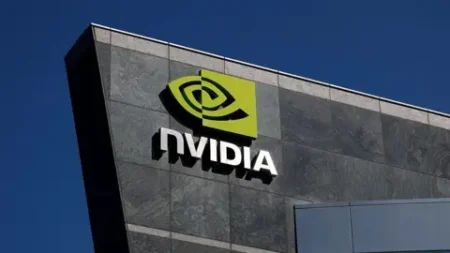On July 15, 2025, Nvidia, the renowned US technology powerhouse, announced that it would restart its sales of premium artificial intelligence (AI) chips to China. This decision comes after assurances from the US government that the necessary licenses for exporting these chips would be granted, allowing Nvidia to resume operations in China, which is the world’s second-largest economy. This plan marks a significant shift in the company’s previous sales outlook, considering the stringent export restrictions imposed earlier.
The sale of Nvidia’s high-end H20 chips had faced a ban due to concerns regarding their potential military applications by the Chinese government. This restriction was initially enforced by the administration of then-President Donald Trump back in April. The H20 chips were at the center of contentious export controls designed to prevent advanced technology from reaching China amidst the ongoing AI competition between the US and its Asian rival.
The recent announcement indicates a potential thawing of the trade tensions between Beijing and Washington, which have seen numerous fluctuations over the recent years. The US Department of Commerce has yet to respond publicly to requests for comments on this sudden change of policy, leaving some industry analysts to speculate about the broader implications for international relations and trade dynamics.
It is important to note that this resumption of sales comes on the heels of a notable series of trade negotiations between the two major economies. In May, both parties agreed to a temporary truce in their ongoing tariff disputes. They established a deadline of August 12 for reaching a more comprehensive agreement regarding the elevated tariffs that have affected numerous industries and escalated market uncertainties globally.
Nvidia’s H20 chip was notably designed after the Biden administration’s restrictions were enforced in 2023, reflecting the company’s adaptability to regulatory pressures. Following the ban by Trump’s administration, the development progressed in anticipation of a future where relations might improve. Indeed, the easing of trade tensions was underscored by recent actions such as China’s decision to relax its controls on rare earth exports and the US’s lifting restrictions on chip design software companies that operate in China.
Nvidia’s outlook in China as a significant market has remained robust, with the region standing out as one of its top consumers globally. CEO Jensen Huang has been proactive in advocating for the resumption of H20 chip sales. He has made concerted efforts to engage with both American and Chinese officials to underline the strategic importance of AI in enhancing productivity and spurring innovative research.
During his recent visit to China, Jensen Huang met with both President Trump and various Chinese government officials. The discussions focused on the potential contributions AI can make to societal advancement, and those meetings reinforce Nvidia’s commitment to creating job opportunities while ensuring the US maintains its leadership role in AI technologies globally.
In a landmark achievement last week, Nvidia reached a monumental market valuation of $4 trillion (£2.3 trillion), solidifying its status in the global market. This financial milestone further emphasizes the importance of Nvidia’s products, particularly the H20 chips, as critical to maintaining technological edge in the rightly competitive sector of artificial intelligence.
In summary, Nvidia’s decision to resume its sales of AI chips to China represents a crucial development in the intersection of global technology and international politics. With both nations exploring avenues to stabilize trade relationships, the outcomes of these negotiations will be pivotal not only for Nvidia but for the future trajectory of tech innovation and economic interactions in the years to come.











